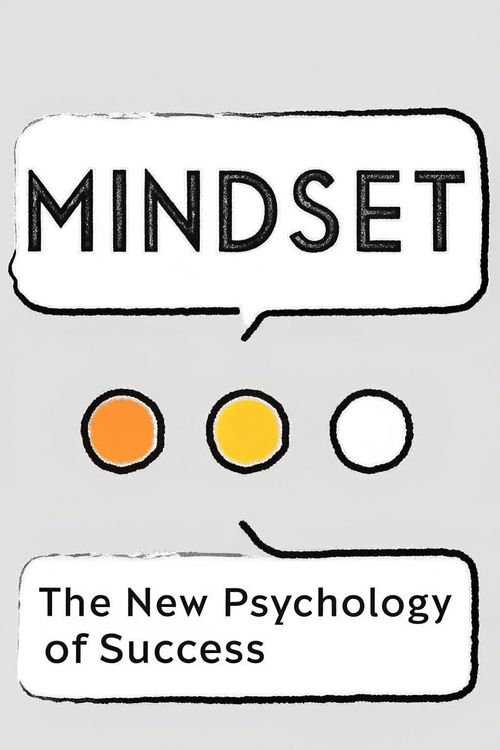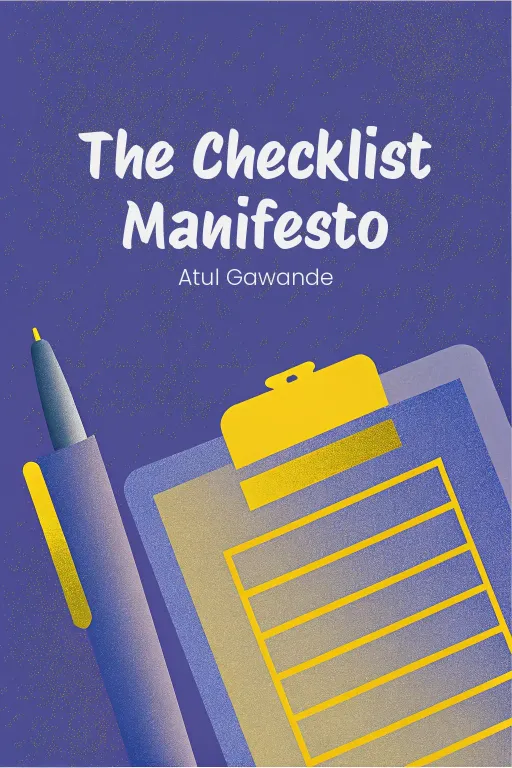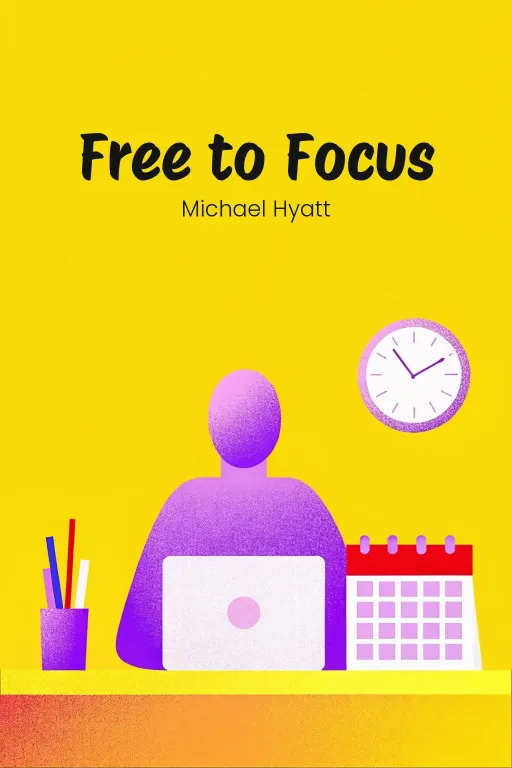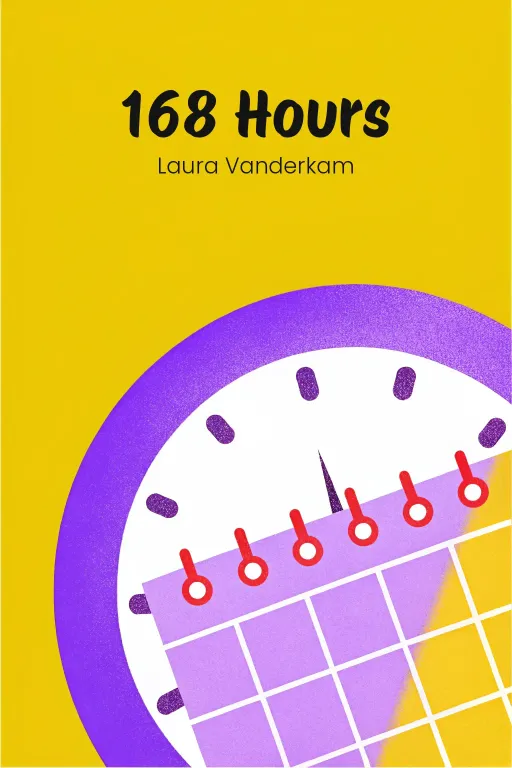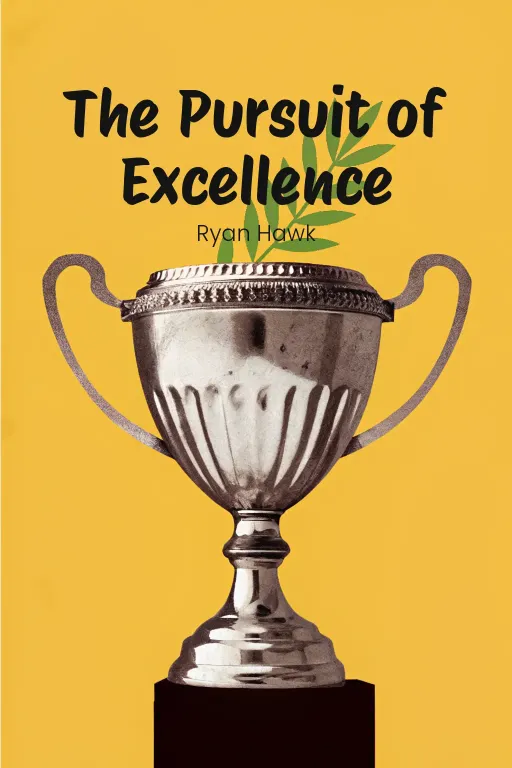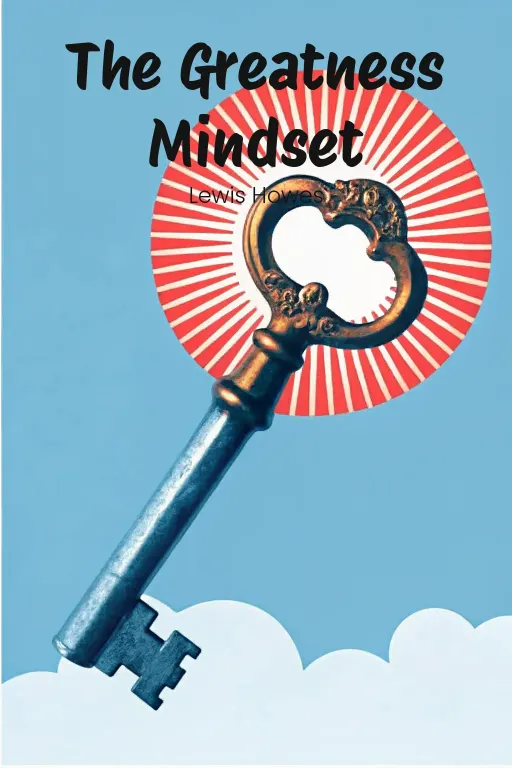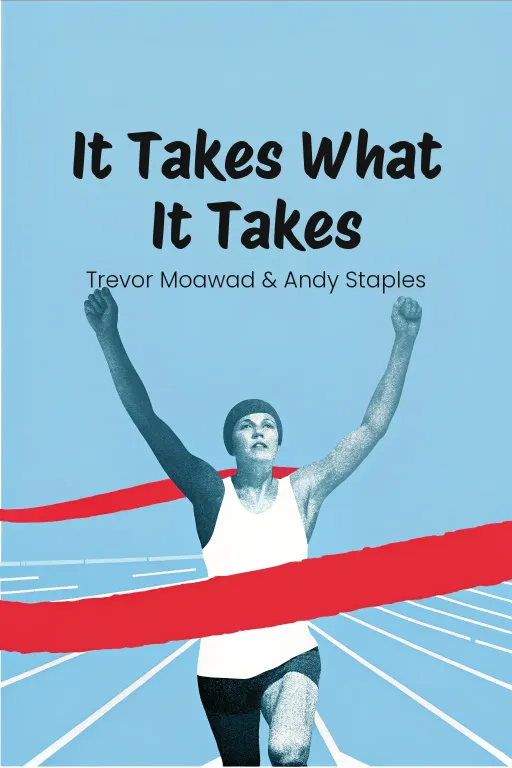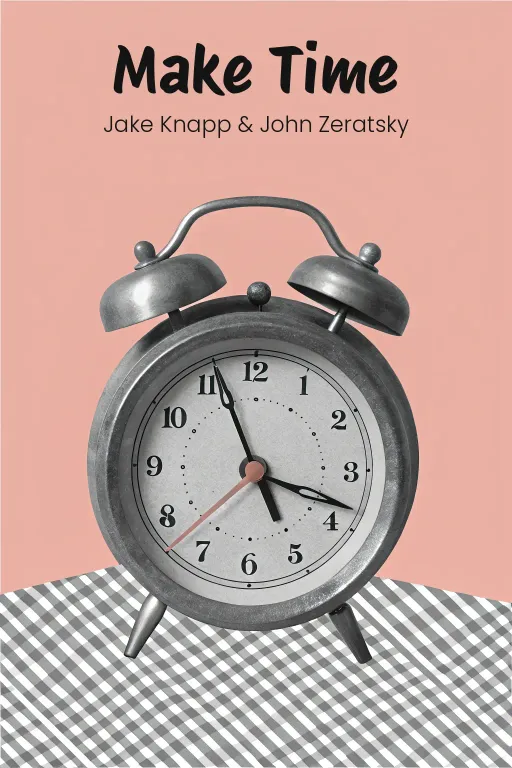
Time Multiplier: Ditch the Daily Chaos
Podcast by Beta You with Alex and Michelle
5 Permissions to Multiply Your Time
Time Multiplier: Ditch the Daily Chaos
Part 1
Alex: Ever feel like you're just constantly chasing your tail, wishing you had more hours in the day? That feeling of “too much” to do, and never enough time? Michelle: Oh, tell me about it. But I’m guessing the solution isn’t some crazy sleep-deprivation experiment, right? Alex: Nope, not at all. Today, we're diving into a really interesting approach to time management from Rory Vaden's book, Procrastinate on Purpose. And it's not about cramming more into your already overflowing schedule. It's about learning how to actually “multiply your time”. Michelle: Multiply time? Seriously? Are we talking some kind of Doctor Who situation here? Do I need a sonic screwdriver? Alex: Nothing quite so dramatic! The core idea is surprisingly straightforward: You shift your focus from just managing your time to prioritizing what's truly significant over what feels urgent. It's about constantly asking yourself, "What choices can I make today that will actually free up more of my time down the road?" And Vaden provides some really practical tools to help us do just that. Michelle: Okay, "tools." So, no miracle cures or get-rich-quick schemes, got it. Alex: Definitely not. One of the key tools is the “Focus Funnel”. It’s a system for filtering your tasks and decisions into five key actions: eliminate, automate, delegate, procrastinate – intentionally, of course – and concentrate. Michelle: Hold on, procrastinate? Isn't that like, the opposite of productivity? Alex: Not when you're doing it on purpose! It's about consciously choosing—not just mindlessly ignoring—what to delay until the absolutely best moment. And that’s just one piece of the puzzle we’ll be unpacking today. Michelle: Alright, so we're talking about why this works, how to make it work, and tackling the mental hang-ups that might get in the way of this productivity shift? Alex: Precisely! By the end of this discussion, you'll have a solid roadmap for ditching the daily chaos and really focusing on what matters most. Both now and in the long run. So, ready to dive in?
Significance Over Urgency
Part 2
Alex: Okay, Michelle, now that we’ve set the stage, let's dive into this idea of “significance over urgency”. It's basically about shifting from just reacting to actually managing your life for the long haul. Michelle: Right, focusing on what really matters instead of just firefighting all day. But honestly, Alex, isn't that easier said than done? I mean, how do you figure out what's "significant" when everything's screaming for your attention? Alex: That’s where the “Time-Management Matrix” comes in. Stephen Covey “really” popularized it. It breaks down tasks into four quadrants. Think of it as a way to sort through the chaos and see where your time is actually going. Michelle: A matrix, huh? Okay, so is this going to solve the black hole that is my inbox, or is this more, like, theoretical? Alex: It's both practical and insightful! So, Quadrant 1 is “important and urgent”: crises, deadlines, emergencies, you know? Stuff you have to deal with, or there are consequences. Then you've got Quadrant 2, which is “important but not urgent”: the sweet spot! This is where long-term planning, relationship building, self-care live. Michelle: And let me guess, most people, myself included, don't spend nearly enough time in Quadrant 2? Alex: Bingo! Instead, we get sucked into Quadrant 3: “not important but urgent.” Think emails, unnecessary meetings, those constant interruptions that feel like they need immediate attention but don’t actually contribute to your goals. Michelle: So, Quadrant 3 is like that coworker who asks, "Got a minute?" when you definitely don't have a minute. Alex: Exactly! And then there’s Quadrant 4: “not important and not urgent”. Total distractions. Like mindlessly scrolling through Instagram or binge-watching Netflix for hours. Michelle: Hey, hey, are you coming for my Netflix time, Alex? That’s sacred! Alex: No judgment, Michelle – I'm guilty, too! But the goal is to rebalance and spend more time in Quadrant 2, where the real significance lies. That's where you set yourself up for future success. Michelle: Okay, makes sense so far. But here’s a question: how do you stop those Quadrant 1 emergencies from just snowballing? It feels like everything that lands on my desk is urgent! Alex: That’s a great question. It directly relates to what Rory Vaden calls “Priority Dilution”. It's what happens when we focus so much on those urgent, little tasks that we neglect the meaningful, non-urgent projects. Michelle: Oh, you mean like when you spend all day just firefighting – emails, back-to-back meetings, putting out flames – and then realize you haven't touched the big, strategic stuff that actually moves the needle? Alex: Exactly! Priority Dilution makes you feel productive because you're constantly busy, but it leaves you spinning your wheels when it comes to long-term growth. Michelle: Okay, guilty. It’s like those never-ending to-do lists you check off feverishly, but you don’t feel like you’re getting anywhere meaningful. Alex: Precisely! Rory Vaden gives the example of frontline managers who get so caught up in operational details, like approving timecards or fielding team questions, that they ignore opportunities to mentor employees or implement systems that could streamline those very operations. Michelle: So, they’re trading short-term productivity for long-term effectiveness. Alex: Exactly! And Vaden emphasizes adding a third dimension to how we evaluate tasks. Instead of just asking, "Is this urgent or important?" the key question becomes, “How long will this matter?” Michelle: Ah, the significance piece! That third dimension… that changes everything. So, it’s not just about today’s chaos or even this week, it’s about zooming out and figuring out what has staying power. Alex: Absolutely! Take a financial advisor, for example. Should they spend their time juggling calls with current clients or getting to know those clients’ heirs? I mean, the immediate revenue is with the current generation, but building relationships with the heirs means the firm stays in the family for decades. Michelle: I get it. The advisor isn’t abandoning the present, just re-calibrating the time investment for compounded impact. Alex: That’s the essence of this shift. And Vaden draws this broader lesson: moving from “efficiency”, which is doing things faster, to “effectiveness”, which is working on the right things that actually build the future. Michelle: I like that. Efficiency might get your inbox to zero, but effectiveness means creating something lasting – like a robust client pipeline or, you know, a life you actually enjoy? Alex: Exactly! And Vaden uses another powerful image: “the pitcher metaphor”. Imagine your time as a pitcher of water. Each glass you pour into represents an area of your life, like work, family, fitness, or hobbies. But the point isn’t balancing everything perfectly; it’s about intentionally pouring into the glasses that will have the biggest long-term impact. Michelle: So, if I dedicate a little extra "water" to, say, my relationships today, I’m essentially investing in something that pays emotional dividends later? Alex: Exactly. The priorities that really matter, whether it's professional or personal, should consistently get a larger share of your attention and energy. Otherwise, you end up with a bunch of half-filled glasses that ultimately leave you unfulfilled. Michelle: Kind of makes me rethink how much "water" I’m pouring into emails versus, I don't know, spending quality time with people who actually matter to me. Alex: And that’s the whole point! Shifting from urgency to significance isn't something that happens overnight. It's a mindset you cultivate by asking yourself: does this task align with my values? Is it creating future opportunities? Can I delegate or delay it without consequences? Michelle: Or, in my case, “Is this client meeting really a Quadrant 1 matter, or just someone being pushy?" Alex: Exactly! It’s not about perfection. It's about consciously re-calibrating how you spend your time. By focusing on Quadrant 2 activities, you’re not just surviving; you're paving the way for future growth.
The Focus Funnel
Part 3
Alex: Right, so understanding how to prioritize things naturally leads us to practical tools for this mindset, and that’s where the Focus Funnel comes in. It's Rory Vaden's system to help us cut through the noise. Michelle: So, we're talking about prioritizing significance over urgency, but now we need something actionable, right? Not just theories, but a real framework? Alex: Exactly. The Focus Funnel structures your decisions with five actions: Eliminate, Automate, Delegate, Procrastinate, and Concentrate. So each step helps you figure out if and how a task deserves your time, and frees you up for value-creation activities. Michelle: Okay, Marie Kondo-ing our calendar. Does this task spark significance? If not, bye-bye! Alex: In a way! The funnel prompts you to ask questions to make your decisions intentional. Starting with the first one: Eliminate, aka Permission to Ignore. Michelle: Permission to ignore—now that sounds like I want to sign that permission slip. What do you actually ditch? It doesn’t always feel optional. Alex: That’s where it gets interesting. Elimination isn’t about shirking, it's about asking, “Does this move me towards my goals, or has it just snuck onto my to-do list?” Vaden points out that modern life is full of distractions disguised as priorities. Michelle: Let me guess—emails, meetings and obligatory "networking events"? Alex: Ding, ding! Unnecessary meetings are a big one. How often do people attend recurring status updates that provide no value? It consumes valuable time out of repetition. Michelle: Oh, totally. Like those meetings that could’ve been an email—or, you know, not existed at all. So elimination means taking a scalpel to those time-wasters? Alex: Precisely. It’s about cutting the fluff. Vaden also calls this a form of confidence—not being afraid to say no to what matters. Michelle: I see the appeal, but let’s get practical. If I’m in a corporate role, how do I do this without being "most uncooperative coworker"? Alex: Great point. It's not about being dismissive or reckless. Instead, it’s about asking why the task exists. For meetings, propose alternatives—condensing updates into a document or replace weekly calls with biweekly ones. You're redirecting energy. Michelle: Got it. Strategic elimination—not just ghosting your obligations. Alex: Exactly. And once you’ve eliminated what doesn’t matter, the next step is Automate, aka Permission to Invest. Michelle: Automation—I love the sound of tools doing my work for me. Where does Rory Vaden draw the line? Smart homes, or automating workflows at the office? Alex: Both, actually. Automation is about systems—technology like scheduling software or setting up payroll systems. Invest upfront in something that will save you hours later. Michelle: Okay, but doesn’t setting up automation take a long time at first? Feels like a headache. Alex: It can, but Vaden compares it to compounding interest. Initial effort, but the benefits compound over time. Take Troy Peple’s story from the book. He was swamped with spreadsheets when he invested in a CRM platform. It required mapping workflows and creating systems, but within a year, his team doubled their revenue. Michelle: So, by automating, Troy’s team freed up mental bandwidth and avoided those "manual error" disasters that happen when you’re doing everything yourself. Alex: Exactly. And here’s the shift: automation isn’t about removing the human element—it’s about clearing repetitive tasks to focus on meaningful work. Think, “What’s eating my time now that I could offload into a system?” Michelle: Alright, I like it. Automation lets the robots carry some of the load so we can all focus on being strategic. What’s next—Delegate? Alex: Yup—the Permission of Imperfection. Michelle: Permission of… wait, lowering standards? My inner perfectionist is sweating. Alex: Not so fast! Delegation doesn’t mean lowering standards—it means realizing that everything needs your personal touch. It’s about trusting others to step in, even if they don’t do it just like you. Michelle: So this is for all the "control freaks" out there who hoard tasks? Alex: Pretty much. Think of a small business owner who refuses to let go of payroll processing because they believe no one else can “do it right.” Meanwhile, they’re too burned out to focus on growing their client base. By the time they realize it, they’ve stagnated—not because they lack talent, but because they lack trust. Michelle: Sounds painfully relatable, especially in small teams. How do you teach delegation when you’re running at full speed? Training someone takes time—you’re losing momentum, aren’t you? Alex: That’s where the 30x Rule comes in. Vaden suggests multiplying the time it takes to do a task by 30 to account for training someone else on it. If something takes you 5 minutes each time, spend 150 minutes teaching someone else—because the long-term payoff is huge. Michelle: Ah, like a sacrifice now for major time gains later. Plus, you’re building leadership within your team. Alex: Exactly. And when you let go of perfection and empower others, you multiply your time. Michelle: Okay, elimination, automation, delegation—what’s next? Procrastination? Alex: Yes, but it’s strategic procrastination—what Vaden calls the Permission of Incomplete. It’s about recognizing which tasks can wait, because not everything requires immediate action. Michelle: How do you not let procrastination spiral into avoidance? I mean, I can see this devolving if people aren’t disciplined. Alex: That's why it's strategic. For instance, professionals often do something called batching, where they group similar tasks together—like responding to emails in one burst instead of being interrupted throughout the day. You’re deferring them to a better time. Michelle: Ah, so it’s scheduling the right time rather than rushing. Makes total sense. Alex: Exactly. It frees you to focus on high-value work without the constant ping-ping-ping of notifications demanding your attention. Michelle: Alright, last step—Concentrate. Alex: This is where the magic happens—guarding your time fiercely and focusing entirely on high-priority work. Vaden calls it the Permission to Protect, and it's about saying no to distractions. Michelle: Let me guess: the hardest step of all. Protecting your time feels like trying to stop interruptions. Alex: It’s definitely a challenge, but it's powerful when you stick to it. For example, Tonya Mayer—a mother of four and sales leader—started using 15-minute focus bursts to accomplish big goals. She didn’t wait for an hour-long block of free time; instead, she optimized the tiny moments she had. Michelle: So, no excuses, basically. Even short, focused bursts can move the needle. Alex: Exactly. The Focus Funnel’s brilliance isn’t just in organizing your tasks—it’s about helping you live and work with purpose. Each stage filters out the noise so you can concentrate on what truly matters long-term.
Emotional Barriers and Mindset Shifts
Part 4
Alex: So, with the Focus Funnel as our guide, we move into the more challenging terrain of emotional and practical barriers. It's not just about the techniques; it’s about tackling what “really” stops people in their tracks: those emotional hurdles and the mindset shifts we need to overcome them. Michelle: Ah, so we're ditching the dry world of spreadsheets for the tangled web of human feelings? Sounds…intense. Alex: It can be! But the truth is, without addressing these underlying issues, even the best tools—like our Focus Funnel—can fall apart. Let’s take a really common challenge: “the fear of saying no.” Michelle: Ugh, the "yes" addiction. I’m intimately familiar. Why is it so darn hard to tell someone, "No, I just can’t right now”? Alex: At its heart, it’s about avoiding discomfort or conflict. Nobody wants to disappoint or be seen as unhelpful. But agreeing to something that doesn't align with your values often means sacrificing what does matter—like your goals or even your downtime. Michelle: So every time I overcommit, I’m basically… betraying my own priorities. Harsh. Alex: It is. Think of a middle manager who feels obligated to attend every meeting, just to appear available, even if those meetings are a total waste of time. Michelle: Wait, so they’re valuing appearances over actual results? Alex: Exactly! That’s a critical distinction. If you are trying to please everyone, rather than focusing on your purpose, you'll overcommit to Quadrant 3 tasks—urgent but not important things. That's why saying no can, in fact, be the most compassionate thing for everyone involved. Michelle: Compassionate? Now you’ve lost me. How is saying no not just…rude? Alex: Well, if you overextend yourself, you won’t be able to devote enough energy on your own work, you're also not giving your best to others. For instance, saying yes to every insignificant task leaves you drained for when you need to mentor someone, or bring some creativity in your works. Michelle: So, saying no is like…clearing the path so you can actually deliver on what counts. Alex: Precisely. And if you’re terrified of outright rejection, you can be tactful! Try something like, “I’d love to, but I need to focus on a major project right now,” or “Let me look at my schedule before I commit.” Firm, but respectful. Michelle: Sure, but let's be real, it still feels awkward. How do you get past that initial cringe? Alex: Practice! Start setting boundaries in low-stakes situations, like declining a party invitation or a small request, and work your way up. As you see the benefits of saying no for both you and others, the emotional resistance will fade. Michelle: Okay, so once we conquer the "yes" trap, another monster appears: delegation. Alex: Yes! And that monster is “the guilt associated with delegation.” This is huge, especially for perfectionists or those who feel responsible for everything. Michelle: The classic, “If you want it done right, do it yourself” belief. That’s a tough one to shake. Alex: Absolutely, but it’s also self-defeating. Look at Tracy Christman, a high-performing executive and mother of four. Early on, she tried to do it all: manage her team and run her entire household. The result? Burnout. Michelle: And I’m guessing her refusal to delegate didn’t magically improve her efficiency. Alex: Quite the opposite. Once she started delegating—at work and home—she saw a huge change. At work, her team members stepped up and developed because she trusted them with important responsibilities. At home, she taught her kids to help with chores, turning “logistics” into family learning opportunities. Michelle: So, she got her time back and empowered others. That’s a win-win. Alex: Exactly. Her story highlights a huge mindset shift: delegating isn’t a sign of weakness; it’s an investment in others and yourself. Michelle: Let me play devil’s advocate. What if the person you delegate to messes it up? Doesn’t that just create more work? Alex: That’s where Vaden's idea of “the Permission of Imperfection” matters. The truth is, they might not do it exactly as you would. But "good enough" is often perfectly fine, especially when you're already stretched thin. Michelle: So, I need to stop grading everyone’s work like it’s a doctoral thesis, right? Alex: One way to put it! And for those stressing about the "time cost" of training someone? Vaden’s “30x Rule” is our answer. Michelle: Remind me—what’s the 30x Rule again? Alex: Simple. If a task takes you 5 minutes, invest 150 minutes—30 times the task length—teaching someone else to do it. It sounds like a big investment, but over time, it’s a no-brainer. Michelle: It’s like planting a tree. Takes time to grow, but provides shade and fruit for years. Alex: Exactly! Delegation might feel inefficient at first, but it multiplies your capacity and the capabilities of those around you. Michelle: Okay, so once we’ve mastered saying “no” and delegating, what about the stuff we still don’t have time for? Alex: That’s where strategic procrastination comes in—not scrolling through Instagram to avoid your to-do list. Michelle: Good, because I thought you were about to excuse my bad habits. Alex: No way. Instead, strategic procrastination means postponing tasks that don’t need immediate attention or might improve with time—like waiting for more information before deciding. Batch processing is a great example: instead of reacting to every email, you set aside time to handle them all at once. Michelle: So, it’s not ignoring the work—it’s deciding when you’ll focus on it. Alex: Exactly! It’s a deliberate way to avoid distractions and save energy for your priorities. Michelle: Okay, I see how these barriers connect. Saying no, delegating, even procrastinating intentionally—it all boils down to making choices with purpose. Alex: Exactly! And “emotional intelligence” is key. Recognizing and managing your own emotions—and understanding others—helps you make those choices with clarity and confidence. Michelle: Emotional intelligence. Got it. So, if I pair that with the tools we’ve discussed, maybe I can actually feel like I’m running my life, instead of the other way around. Alex: That’s the goal. Purposeful decisions lead to a purposeful life—the ultimate multiplier.
Conclusion
Part 5
Alex: Okay, so to bring it all together, we've really been talking about shifting your mindset from just chasing what feels urgent to focusing on what's truly significant. It’s about prioritizing those tasks that build long-term value, instead of just reacting to whatever's screaming the loudest in the moment. Michelle: Exactly. And we discussed some frameworks to help with that, right? Things like the Time-Management Matrix and the Focus Funnel – almost like filters to sift through all the noise. You eliminate the unnecessary, automate what you can, delegate to empower your team, procrastinate intelligently on the marginal tasks, and really laser-focus on what matters most. Alex: Absolutely. And it's not just about the tools, is it? We also need to address those emotional hurdles. Things like letting go of the fear of saying "no", dealing with the guilt of delegating, and being okay with imperfection. Those mindset adjustments? They're just as crucial as any practical technique. Michelle: It boils down to asking yourself better questions, doesn’t it? Like, "Will this matter six months from now?" or "Is this really the best use of my limited time?" Most importantly, "Am I spending my energy on things that genuinely align with my bigger ambitions?" Alex: That's it. I mean, your time really is the most precious resource you've got. So treat it that way. Start with something manageable – maybe reassess one recurring task, set one clear boundary, or hand off just one responsibility. Those little tweaks? They compound over time and make a huge difference. Michelle: So the real question is, are you just managing your time, or are you actually multiplying it? Because that, I think, is the key takeaway here.
